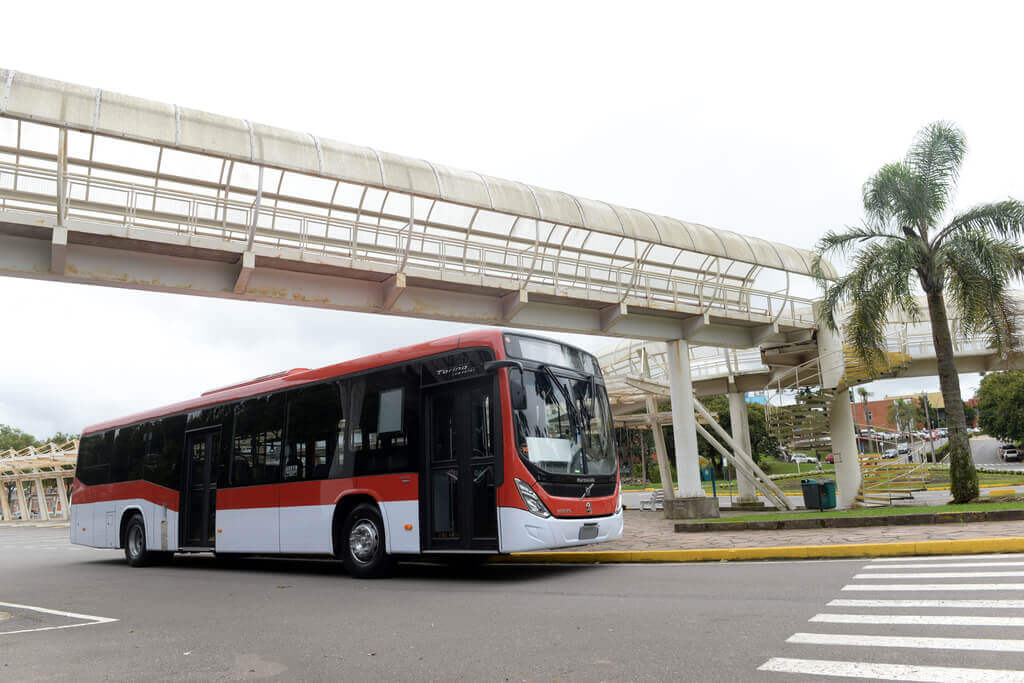As part of the renewal of a large part of its bus fleet, the city of Santiago is focused on improving safety. Subus, one of the largest operators in Santiago’s urban mass transit system, is receiving new Volvo buses that are equipped with the Safety Zones system that uses connectivity via GPS to automatically reduce speed in critical areas.
 “We have a strong presence in Santiago. In 2005, when the integrated bus system was established, Volvo was the largest vehicle supplier. Our buses helped the city to take a leap in improvement of urban mobility, with benefits that are still felt today,” said Fabiano Todeschini, President of Volvo Buses Latin America.
“We have a strong presence in Santiago. In 2005, when the integrated bus system was established, Volvo was the largest vehicle supplier. Our buses helped the city to take a leap in improvement of urban mobility, with benefits that are still felt today,” said Fabiano Todeschini, President of Volvo Buses Latin America.
The Volvo B8Rs are equipped with an electronic disk brake system, electronic suspension, Volvo’s Fleet Management system and I-Coaching (virtual driver instructor). In addition, the Chilean buses feature Volvo’s automatic speed control system, which uses GPS to identify critical areas with high accident rates, and limit the maximum speed regardless of the driver’s actions. Approved after a year in use in Curitiba (Brazil), where BRT bus collisions were reduced in 50%, this technology has now become a factory standard in all Volvo’s heavy-duty vehicles in the continent.
The 120 new buses are equipped with Euro VI emissions standards compliant engines: “Santiago is in a valley surrounded by mountains. The city has a major focus on reducing emissions, due to the topographic difficulty in dispersing particulate matter in the air,” added Alexandre Selski, Volvo Buses Strategic Sales Director in Latin America.
“Similar to other cities with planned urban transport systems, we are the leading brand in high capacity chassis also in Santiago,” added José Antonio Margalet, Volvo Chile Commercial Bus Director.
Santiago currently has 6,700 buses, of which 2,800 are Volvo. The new deliveries, which have Marcopolo bodies manufactured in Brazil, are all for Subus, one of the city’s largest operators with a fleet of over 1,300 vehicles.
Santiago’s combined public transport system carries around 6.2m users per day.

